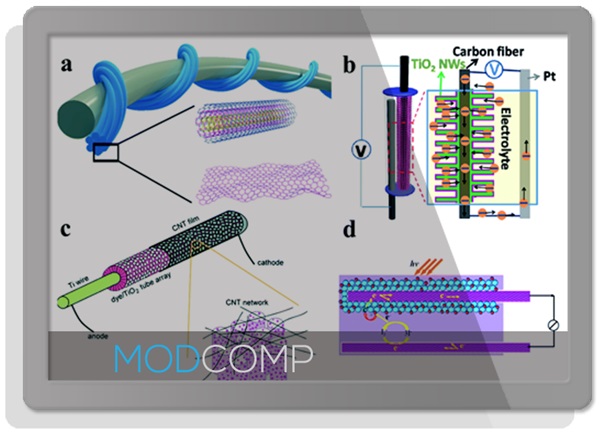Technological demands in many areas are increasingly expanding the properties of advanced materials to extend their applications. This project aims to demonstrate the influence of different surface enhancing and modification techniques on CF-based materials for high-value and high-performance applications. These materials are a route to further exploiting advanced materials, using enabling technologies for additional functionalities, without compromising structural integrity.
Carbon fiber is made of thin, strong crystalline filaments of carbon that are known for their lightweight, good mechanical, electrical, and thermal properties. End-users from a wide range of industrial sectors (transport, construction, leisure, and electronics) will adapt the knowledge gained from the project and test the innovative high added value demonstrators. An in-depth and broad analysis of material development, coupled with dedicated multi-scale modeling, recycling, and safety studies will be conducted in parallel for two types of materials:
- CF-based structures with increased functionality (enhanced mechanical, electrical, and thermal properties).
-Carbon nanofiber (CNF)-based structures for new flexible electronics applications.
Meanwhile, standardization, up-scaling, cost-effectiveness, and production of reference materials will also be considered.

Figure1: Surface modification of carbon fibers.
Fiber-based materials have plenty of benefits in aerospace applications because of having lightweight, high strength, high stiffness, and high fatigue-resistant properties.
Therefore, MODCOMP focuses on the desire for fiber-based materials for high-value, high-performance products by demonstrating the successful development of functionalized fiber-based composites for a range of industrial applications.
The reduced cost of CFs is addressed by optimizing the fraction of fibers present in the composite without a detrimental reduction in performance. Small quantities of nano-fillers are introduced, which can significantly improve the overall functionality of the final product with a competitive total price.
The project brings together seventeen partners from eleven European states such as the National Technical University of Athens – NTUA (Greece), The University of Birmingham (UK), Politecnico di Torino (Italy), Thales (France), and other organizations and institutions. The MODCOMP project is supported by Horizon 2020 and has raised € 9,377 million.
After 4 years of successful research cooperation, the latest research work on the field of modified cost-effective fiber-based structures with improved multi-functionality and performance are Electrochemical treatment of CFs, Surface modification of carbon fibers for high-performance carbon fiber composites, Multiscale carbon fiber reinforced polymer (CFRP) composites, Data Management Plan as a prerequisite for FAIR Data and Machine Learning, Prototype to perform electrophoretic deposition (EPD) of carbon nanotubes (CNTs) and Modelling to support materials developments.

Figure2: CF-based materials for electronics application.
The industrial impact of MODCOMP in Europe matters and economical vision is important as well as technical aspects. MODCOMP will open a new field of innovation based on advanced materials (especially carbon fibers) and technologies development and will help the industrial leadership of Europe in strategic domains (electronics, construction, transport, aerospace…).
